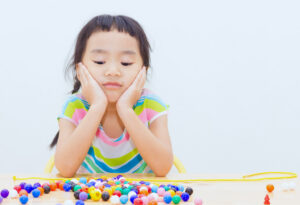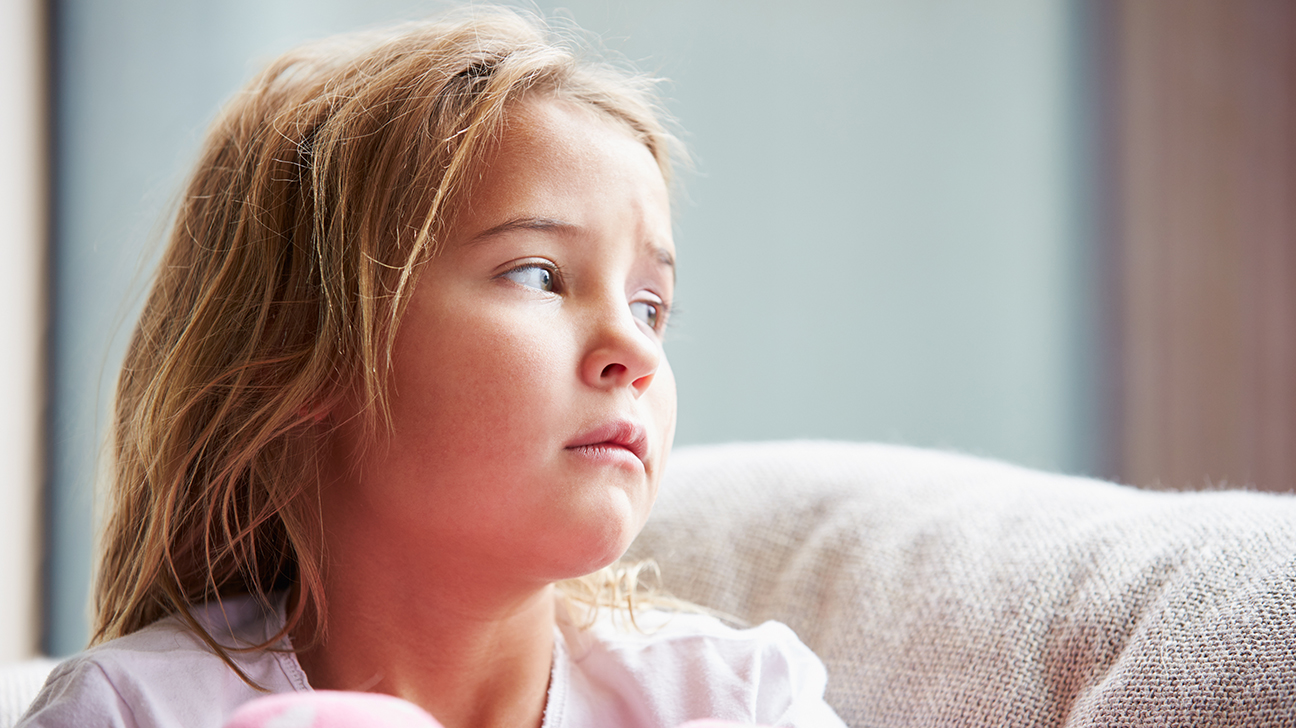If you are the parent of a child who is exhibiting signs of obsessive-compulsive disorder (OCD), it can be difficult to know how to best support them. OCD is a complex mental illness that requires treatment from a professional. However, there are some things you can do at home to help your child feel safe and understood. In this blog post, we will discuss the symptoms of child OCD, as well as how to best respond to them.
Contents
What Is OCD In Child?
 OCD in children is different from adult OCD in a few key ways. First, children with OCD are more likely to have what’s called “pure-O” OCD, which means their compulsions take the form of mental rituals rather than observable physical ones. For example, a child with pure-O OCD might obsessively count in her head or say certain words or phrases over and over to herself as a way of neutralizing her anxiety.
OCD in children is different from adult OCD in a few key ways. First, children with OCD are more likely to have what’s called “pure-O” OCD, which means their compulsions take the form of mental rituals rather than observable physical ones. For example, a child with pure-O OCD might obsessively count in her head or say certain words or phrases over and over to herself as a way of neutralizing her anxiety.
Second, children with OCD are more likely than adults to experience what is called “magical thinking” obsessions. These are obsessions that center around the idea that thoughts can influence events in the real world. For example, a child with magical thinking obsessions might be afraid that if she doesn’t think a certain thought, something bad will happen to her family.
Children with OCD may also have fears that are specific to childhood, such as fears of being separated from their parents or fears of monsters under the bed. However, it’s important to note that not all children who have these types of fears necessarily have OCD. There may be many other reasons why a child has these types of fears.
If you think your child may have OCD, it’s important to talk to your child’s doctor. The sooner OCD is diagnosed and treated, the better the outcome is likely to be.
Different Child OCD Symptoms

There are many different child OCD symptoms, and it can be tough to know how to recognize them. It’s important to remember that every child is different, so what might be a symptom in one child may not be a symptom in another. However, there are some common child OCD symptoms that you can look out for:
Difficulty In Concentrating
One of the main child OCD symptoms is difficulty in concentrating. If your child is struggling to focus on school work or other tasks, it could be a sign that they are dealing with OCD. Sometimes there may be many things going on in their mind that they can’t focus on anything else.
Excessive Worrying
If your child is constantly worrying about things, it could be a sign of OCD. They may worry about things that seem silly to you, but to them, it feels very real and important. Sometimes there are also many “what if” thoughts going through their mind that they can’t stop.
Avoidance Behaviors
Another common child OCD symptom is avoidance behaviors. If your child is avoiding certain activities or places because they are afraid of what might happen, it could be a sign of OCD. For example, they may avoid going to school because they are afraid of having a panic attack in front of their classmates.
Obsessive Routines
If your child has obsessive routines or rituals that they feel like they need to do to prevent something bad from happening, it could be a sign of OCD. For example, they may wash their hands over and over again or check the locks on the door multiple times before they go to bed.
Tics and Twitches
Tics and twitches are another common child OCD symptom. If your child is making repetitive movements or sounds that they can’t control, it could be a sign of OCD. For example, they may blink their eyes excessively or clear their throat all the time. There are also many different types of tics and twitches, so it’s important to talk to your child’s doctor if you notice any sudden or persistent changes.
Constant Doubting
If your child is constantly doubting themselves or second-guessing their decisions, it could be a sign of OCD. They may have a hard time making simple decisions because they are afraid of making the wrong choice. There are also many different types of tics and twitches, so it’s important to talk to your child’s doctor if you notice any sudden or persistent changes.
Constant Fear of Harm
If your child is constantly afraid that something bad is going to happen to them or their loved ones, it could be a sign of OCD. They may have intrusive thoughts about harm coming to them or their family. Sometimes these thoughts can be so strong that they feel like they are real and are happening.
Feeling Anxious or Overwhelmed
If your child is feeling anxious or overwhelmed, it could be a sign of OCD. They may feel like they can’t control their thoughts or emotions and that everything is spinning out of control. This can be a very scary feeling for a child, and it’s important to get help if you think your child is experiencing this.
Constant Need for Approval
If your child is constantly seeking approval from others, it could be a sign of OCD. They may feel like they need to be perfect in everything they do to be accepted. This can be a lot of pressure for a child, and it can lead to them feeling anxious and stressed.
These are just some of the common child OCD symptoms. If you notice any of these symptoms in your child, it’s important to talk to their doctor. The sooner OCD is diagnosed and treated, the better the outcome is likely to be.
Negative Impacts of Child OCD Symptoms

There are many negative impacts that child OCD symptoms can have on a young person. These can include:
Poor Grades In School
One of the constant negative impacts of child OCD is poor grades in school. This can be a result of the child not being able to focus on their studies, or they may become so anxious about their symptoms that they are unable to concentrate in class.
Isolation From Friends and classmates
Another common negative impact of child OCD is isolation from friends and classmates. This can happen because the child becomes so focused on their symptoms and rituals that they withdraw from social activities. Additionally, other children may start to avoid the child with OCD because they don’t understand what they’re going through.
Feelings of shame, guilt, and inadequacy
Child OCD symptoms can also lead to feelings of shame, guilt, and inadequacy. The child may feel like they are not good enough or that they are dirty because of their symptoms. As a result, they may start to withdraw from family and friends and become more isolated.
Families Impacted by Child OCD
Child OCD can also hurt families. Families may start to argue more as they try to accommodate the child’s symptoms and rituals. Additionally, the child with OCD may become withdrawn and stop participating in family activities. The family may also start to feel like they are walking on eggshells around the child, which can lead to further tension.
Self-Harm
Another potential negative impact of child OCD is self-harm. The child may become so overwhelmed by their symptoms that they turn to self-harm as a way to cope. This can be extremely dangerous and should be addressed immediately if it occurs.
Negative Thinking
Another common impact of child OCD is negative thinking. The child may fixate on negative thoughts and start to believe that they are true. This can lead to a downward spiral of negative thinking that can be very difficult to break out of.
How To Treat Child OCD Symptoms?

Treating a child’s OCD symptoms can be a challenge for parents. Often, children with OCD do not want to talk about their obsessions or compulsions because they are embarrassed or ashamed. As a result, parents may not even know that their child is struggling with OCD. Here are some tips for recognizing and responding to child OCD symptoms:
Medications
Medications are often used to treat child OCD symptoms. The most commonly prescribed medications for OCD are selective serotonin reuptake inhibitors (SSRIs). SSRIs work by increasing levels of serotonin in the brain, which can help reduce the intensity and frequency of obsessions and compulsions.
Behavioral Therapy
Behavioral therapy is another treatment option for children with OCD. Also, Behavioral therapy focuses on helping children change their thoughts and behaviors associated with their obsessions and compulsions. This type of therapy is often combined with medication treatment to provide the best results.
Parent Education and Support
Parents need to educate themselves about OCD and its treatment options. Parents also need to provide support and understanding to their child who is struggling with OCD symptoms. Often, children with OCD feel isolated and alone. Parent education and support can help reduce these feelings and improve the child’s overall treatment outcome.
Training
Another important aspect of treating child OCD symptoms is training. This type of training can help parents, teachers, and other adults who interact with the child to understand OCD and how to best support the child. Training can also help these adults learn how to respond effectively to the child’s obsessions and compulsions.
Self-Care
Another important part of treating child OCD symptoms is self-care. Parents need to take care of themselves to be able to properly care for their children. This means getting enough sleep, eating a healthy diet, and exercising. It is also important for parents to find a support system to help them through this challenging time.
If you think your child may be displaying signs of OCD, it is important to talk to your child’s doctor. Early intervention and treatment can make a big difference in the severity and duration of the disorder. With proper treatment, children with OCD can lead happy and healthy lives.
Tips For Parents Who Are Helping Child To Manage OCD Symptoms

There are many tips to help parents manage their child’s OCD symptoms. The first step is to understand what OCD is and how it manifests in children. This will help you be able to identify the signs and triggers of your child’s OCD. Once you know what to look for, you can start to develop a plan to help your child cope with their symptoms.
Here are some tips for helping your child manage their OCD symptoms:
-Encourage your child to express their thoughts and feelings openly. This can be done through talking, journaling, or art.
-Help them to develop healthy coping mechanisms such as relaxation techniques, exercise, or deep breathing exercises.
-Challenge your child’s negative thoughts by having them come up with evidence that disproves their thoughts.
-Encourage your child to take breaks throughout the day, especially if they are feeling overwhelmed by their thoughts or symptoms.
-Make sure to provide support and understanding for your child. This can be a difficult journey for them and they will need all the love and support they can get.
If you think your child may be suffering from OCD, it is important to seek professional help. A mental health professional will be able to assess your child’s symptoms and develop a treatment plan that is best for them. With the right help, children with OCD can learn to manage their symptoms and live happily, healthy lives.
Conclusion
Child OCD symptoms are not always easy to spot. If you think your child may be exhibiting signs of OCD, it’s important to talk to a mental health professional. With proper diagnosis and treatment, many children with OCD can go on to lead happy and successful lives.
There are many different types of OCD, and each child may exhibit different symptoms. However, some common signs that your child may have OCD. Sometimes there are also physical symptoms, such as tics or compulsions that involve movement.
If you notice any of these signs in your child, don’t hesitate to reach out for help. The sooner you get your child the treatment they need, the better their chances are for a bright future.
Your mental health — Your psychological, emotional, and social well-being — has an impact on every aspect of your life. Positive mental health essentially allows you to effectively deal with life’s everyday challenges.
At TherapyMantra, we have a team of therapists who provide affordable online therapy to assist you with issues such as depression, anxiety, stress, workplace Issues, addiction, relationship, OCD, LGBTQ, and PTSD. You can book a free therapy or download our free OCD treatment app on Android or iOS


